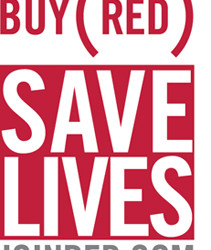I started a Facebook group for fans of the first volume in my trilogy, The People of the Sign, to discuss the many challenging topics that are touched upon in the book, directly or in passing. The group has over 500 members and is slowly growing because people love to have a voice, and the group gives them an opportunity to believe their ideas are being heard. Sometimes, though, I feel there are a lot of people talking, but nobody listening. Which is sad. Because everyone in the group has something to contribute, and if each member would be willing to listen to, and acknowledge, that which is offered by the others, we’d begin to see some progress.
This dynamic raises a related, big question, which gets at my purpose in writing the trilogy and starting the group. Are we willing to do the hard work of actually “owning the change” that we want to see in the world? Let me pivot from this big question to a micro example.
The term Slacktivism was introduced to me in Seth’s blog from today. First, a definition (from Wikipedia) for those who have an aversion to seeing me use words they are unfamiliar with (sorry for using an inside joke from the group).
“Slacktivism (sometimes slactivism or slackervism) is a portmanteau of the words slacker and activism. The word is usually considered a pejorative term that describes ‘feel-good’ measures, in support of an issue or social cause, that have little or no practical effect other than to make the person doing it take satisfaction from the feeling they have contributed. The acts tend to require minimal personal effort from the slacktivist. The underlying assumption being promoted by the term is that these low cost efforts substitute for more substantive actions rather than supplementing them, although this assumption has not been borne out by research.”
While the assumption hasn’t been borne out by research, I like the way Seth discusses the role of the ego. He finds a way to praise those who spread the word but don’t actually engage. I think this is a “glass-half-full” kind of question with a twist. Our management, or lack thereof, of the interplay between our Id, Ego and Super-ego is quite capable of deceiving ourselves.
Jeremiah 17:9 comes to mind: “The heart is deceitful above all things, and desperately wicked: who can know it?” Which explains why I’m posting this blog here, on the website for the second volume in my trilogy. The events covered in this book showcase how I came to grips with my own self-the me that had made a promise and an overarching commitment to the idea that I, unlike my parents, would NEVER get divorced. And as you’ve guessed already, I did. How did this happen? What was my part in it? This are two of the many questions I try to answer in this book, questions I had to travel around the world in search of answers for. Because of the truth of Jeremiah 17:9.
So I’m less concerned with whether or not slacktivism results in more or less engagement, and more interested in how it highlights the ambient hypocrisy inherent in engaging in those things that make us feel good, while not actually helping/fixing/supporting/changing whatever it is that we’re feeling good about pretending to help/fix/support/change.
Digging deep, confronting our own BS, that is the hard work. I’m a big fan of Bono and his efforts. But has he “sold out” with Product Red? What are the implications of that little “TM” in the corner? Are we doing enough to change the nature of our corporations, our government, our religious institutions, our schools? How do we do it? I submit we do it by working on softening up the hardness of our hearts.
Where have you identified hypocrisy in yourself in the last few years, months, weeks?
Discussions like these are being had in The People Of The Sign on Facebook. If you participate there, your thoughts and words will be challenged. The question is: Do we draw the right conclusions? The ones that will result in real, meaningful change?
Change in ourselves?
Join us and find out. 🙂









